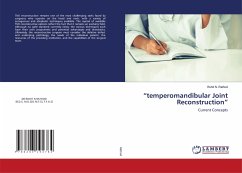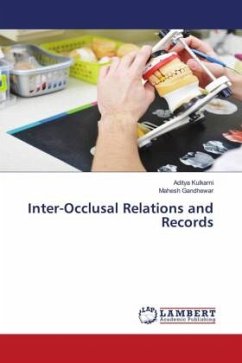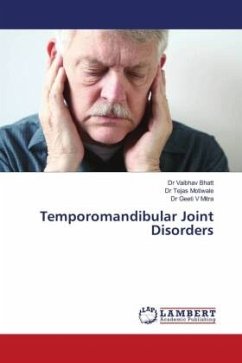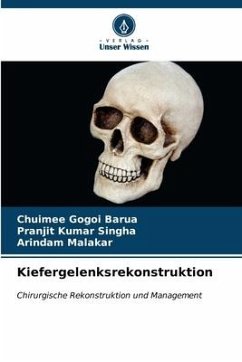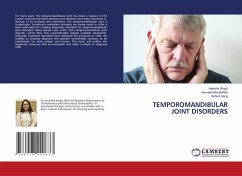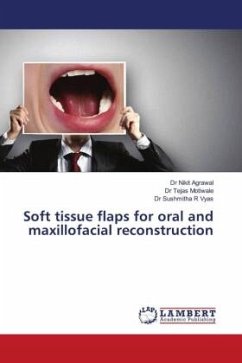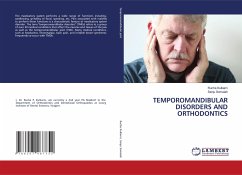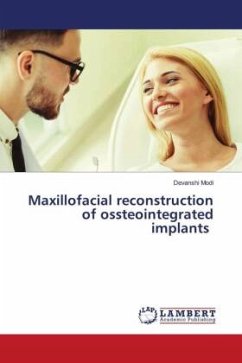
TMJ RECONSTRUCTION
Surgical Reconstruction and Management
Versandkostenfrei!
Versandfertig in 6-10 Tagen
40,99 €
inkl. MwSt.

PAYBACK Punkte
20 °P sammeln!
Reconstruction of the temporomandibular joint because of degenerative disease, autoimmune disease, trauma and congenital abnormalities ranks amongst the most complex and challenging task for maxillofacial reconstructive surgeons. Temporomandibular joint reconstruction has been performed using metatarsophalangeal graft, costochondral graft, sternoclavicular graft, iliac crest and calvarial bone graft. Use of autogenous tissues decreases the likelihood of foreign body reaction; the constructed ramus-condyle unit can be fashioned to include a cartilaginous articulating surface, and a permanent bo...
Reconstruction of the temporomandibular joint because of degenerative disease, autoimmune disease, trauma and congenital abnormalities ranks amongst the most complex and challenging task for maxillofacial reconstructive surgeons. Temporomandibular joint reconstruction has been performed using metatarsophalangeal graft, costochondral graft, sternoclavicular graft, iliac crest and calvarial bone graft. Use of autogenous tissues decreases the likelihood of foreign body reaction; the constructed ramus-condyle unit can be fashioned to include a cartilaginous articulating surface, and a permanent bony union occurs at the new ramus-condyle unit which may undergo biological remodeling in response to function.In recent years, distraction osteogenesis has become an effective method in the treatment of congenital deformities and skeletal defects. Reconstruction of the temporomandibular joint by combining transport distraction osteogenesis with a vertical ramus or sagittal split osteotomy meets most of the functional requirements. Distraction osteogenesis offers several advantages over autogenous grafts by eliminating the need for bone grafting and its associated donor site morbidities.




